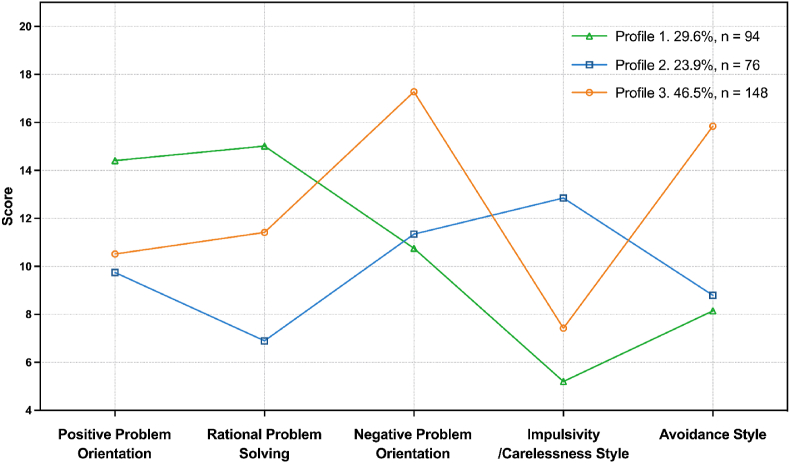Latent profiles of problem-solving skills and their association with depressive symptoms in parents of children with cancer: A cross-sectional study
IF 2.8
3区 医学
Q1 NURSING
引用次数: 0
Abstract
Objective
Depressive symptoms are prevalent among parents of children with cancer, significantly impacting their well-being. Problem-solving skills, strongly linked to depressive symptoms, offer a promising avenue for intervention. This study aimed to identify latent profiles of parental problem-solving skills and evaluate differences in depressive symptoms across these profiles.
Methods
A cross-sectional survey was conducted with 318 parents of children with cancer in mainland China. Self-reported data on demographics, problem-solving skills, and depressive symptoms were collected. Latent profile analysis was used to classify parental problem-solving skills into distinct profiles, and multiple logistic regression identified predictors of profile membership.
Results
Three profiles of problem-solving skills were identified: (1) problem-oriented and constructive (n = 94, 29.6%), (2) impulsivity-oriented and irrational (n = 76, 23.9%), and (3) emotion-oriented and avoidant (n = 148, 46.5%). Parents with higher education, greater income, and urban residency were more likely to belong to the problem-oriented group. Fathers predominated in the impulsivity-oriented group, while mothers were more represented in the emotion-oriented group. Significant differences in depressive symptoms were observed across profiles, with the problem-oriented group reporting the lowest levels.
Conclusions
This study highlights the heterogeneity of problem-solving skills among parents of children with cancer and underscores the need for tailored interventions. Addressing specific characteristics of each profile can improve parental well-being and provide targeted support for this vulnerable population.
Trial registration
ChiCTR2300071828.

癌症患儿父母解决问题能力的潜在特征及其与抑郁症状的关联:一项横断面研究
目的:抑郁症状在癌症儿童的父母中普遍存在,显著影响他们的幸福感。与抑郁症状密切相关的解决问题的能力,为干预提供了一条有希望的途径。本研究旨在确定父母解决问题能力的潜在特征,并评估这些特征在抑郁症状方面的差异。方法:对中国大陆地区318例癌症患儿家长进行横断面调查。收集了人口统计学、解决问题能力和抑郁症状方面的自我报告数据。使用潜在特征分析将父母问题解决能力划分为不同的特征,并使用多元逻辑回归确定特征隶属度的预测因子。结果:(1)问题导向和建设性(n = 94, 29.6%);(2)冲动导向和非理性(n = 76, 23.9%);(3)情绪导向和回避(n = 148, 46.5%)。受过高等教育、收入较高、居住在城市的父母更有可能属于问题导向型群体。父亲在冲动导向型组中占主导地位,而母亲在情感导向型组中占更多。在不同的情况下,观察到抑郁症状的显著差异,以问题为导向的组报告的水平最低。结论:本研究强调了癌症患儿父母解决问题能力的异质性,并强调了量身定制干预措施的必要性。解决每个档案的具体特征可以改善父母的福祉,并为这一弱势群体提供有针对性的支持。试验注册:ChiCTR2300071828。
本文章由计算机程序翻译,如有差异,请以英文原文为准。
求助全文
约1分钟内获得全文
求助全文
来源期刊

Asia-Pacific Journal of Oncology Nursing
Multiple-
CiteScore
2.80
自引率
11.10%
发文量
136
审稿时长
31 days
 求助内容:
求助内容: 应助结果提醒方式:
应助结果提醒方式:


